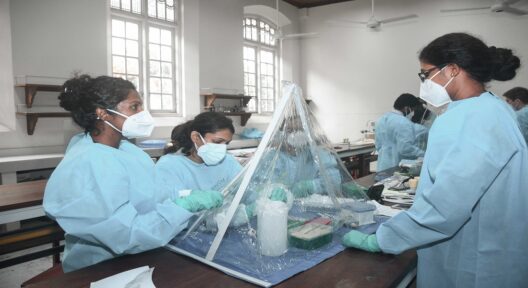IDEAnet
Network for the Identification of Emerging Agents

Context
Numerous international infectious disease outbreaks in recent decades have demonstrated that emerging infectious diseases are a major threat to public health. In Sri Lanka, a tropical island characterised by its rich biodiversity and abundance of wildlife, there is a particularly high risk of viral spillover events. However, the country’s current health care infrastructure and capacity, coupled with the economic crisis, increases the risk of such events not being detected and responded to effectively. It is therefore of utmost importance to strengthen diagnostic capacities for human pathogenic viruses in Sri Lanka, using a One Health approach. In the first funding phase, the project carried out extensive preparatory work for this, establishing routine diagnostics for endemic pathogens, conducting training and identifying new viruses, with the implementation of a One Health approach. Building on these achievements, this project now seeks to develop measures to prevent outbreaks of highly pathogenic viruses and other pathogens in Sri Lanka, including Nipah virus, by advancing the establishment of a One Health laboratory network to strengthen diagnostics and collaboration, knowledge exchange and quality control across laboratories all over Sri Lanka. Working closely with laboratory staff, university students and local health professionals, the project will ultimately enhance the country’s ability to perform fast, affordable, high-quality diagnostics that are accessible to the whole population.
Objective
Strengthening the laboratory network in Sri Lanka, particularly in regard to diagnostic capacities for endemic and emerging viruses, to improve preparedness for future epidemics and pandemics.
Thematic priorities
Facts
Activities
-
Training and competence development
Training personnel in the use of sequencing-based technologies for pathogen detection
-
Research and provision of evidence
Performing a proof-of-principle study for the surveillance of zoonotic viruses in Tunisia, using sequencing-based technologies
-
Networking and cooperation
Strengthening South-South networking between research institutes in the North African region through joint exercises and capacity building workshops
-
Infrastructure development
Procuring items, materials and laboratory equipment to equip laboratories and field teams
-
Capacity development
Establishing sequencing-based technologies for virus detection at IPT; developing a surveillance concept for zoonotic viruses in Tunisia